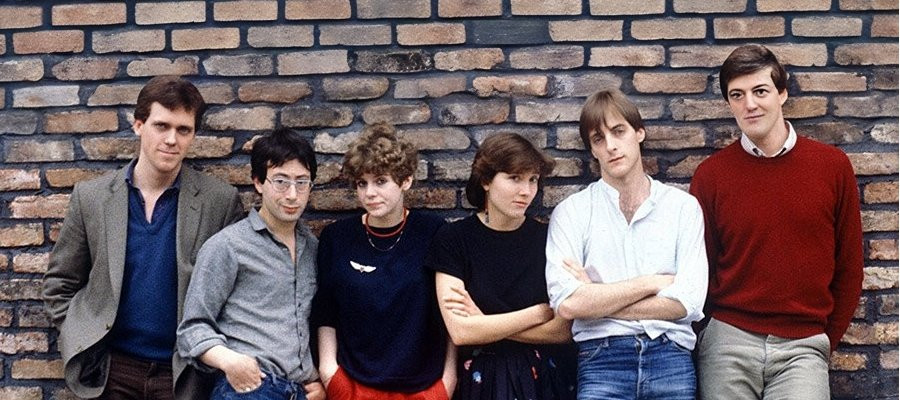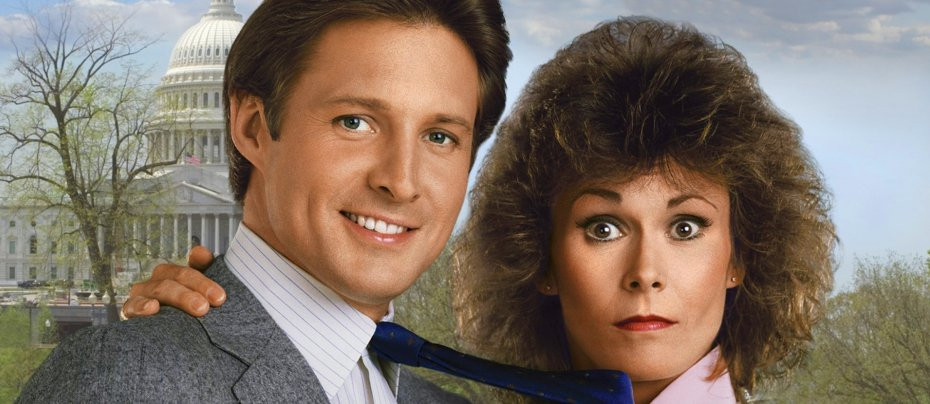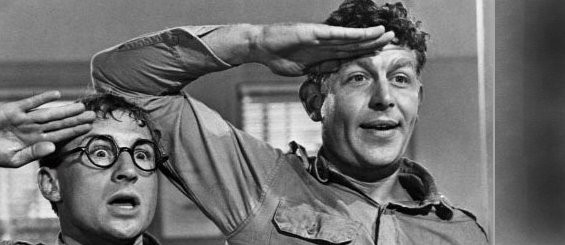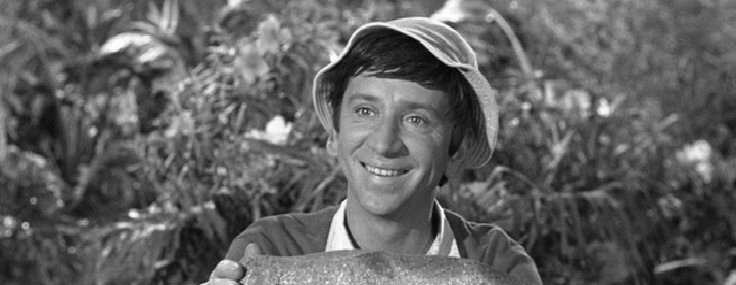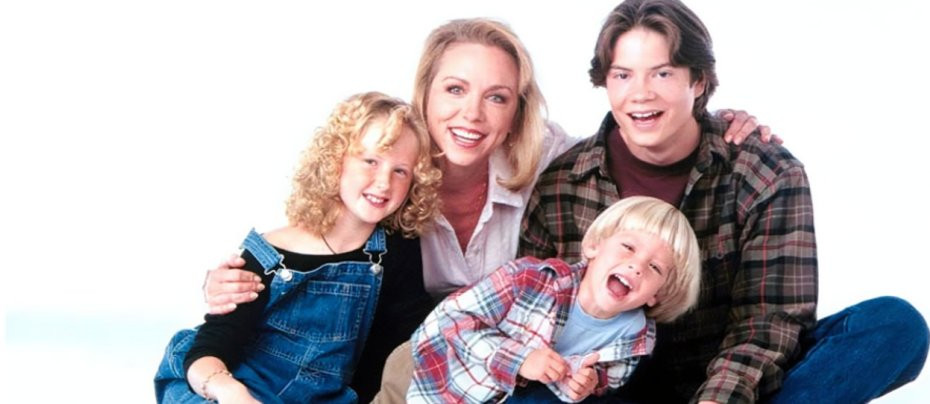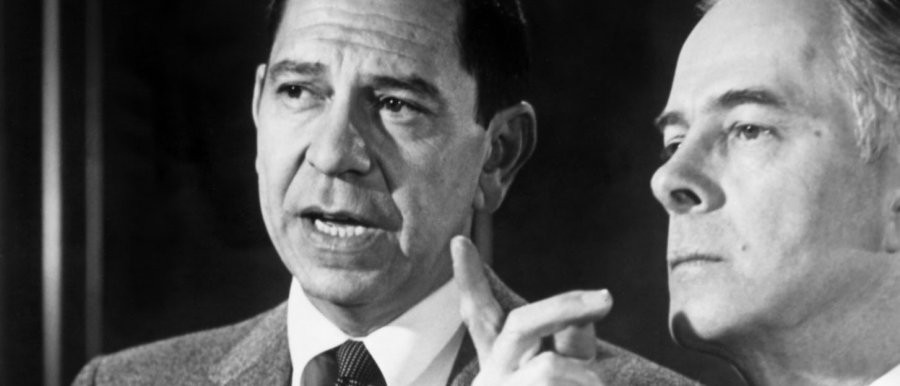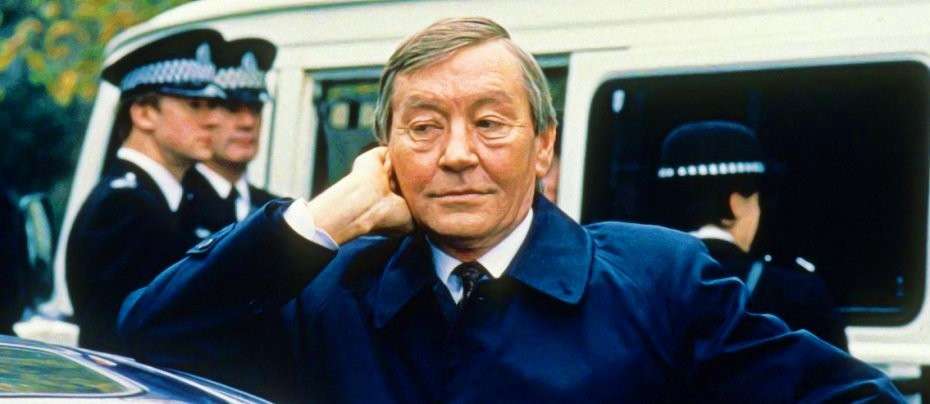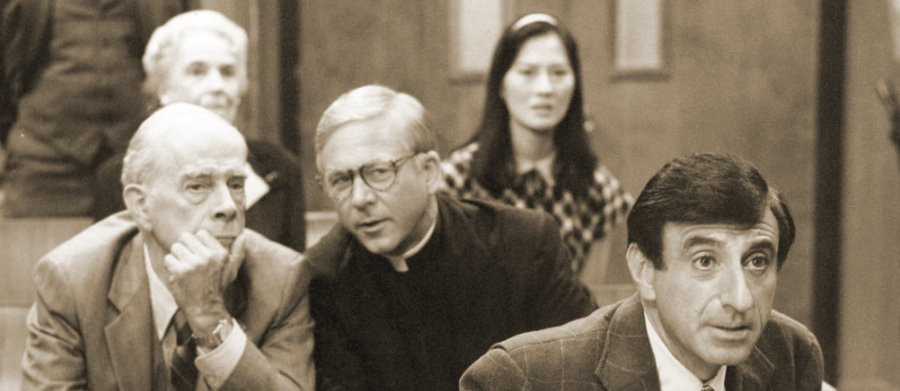
AfterMASH
1983 - United StatesReview: Mike Spadoni
Spinning off established television characters into their own series is a difficult balancing act. Some proved to be successful (Frasier was a prime example), while most other attempts left neither fans nor critics pleased. AfterMASH is a notable example of the latter result.
The idea was sound-take three supporting characters from the very popular and long-running television version of M*A*S*H and flesh out their civilian lives after the Korean War. But what looked good on paper proved to be a different story on the small screen. As a result, AfterMASH was yanked off the air not long after its second season began.
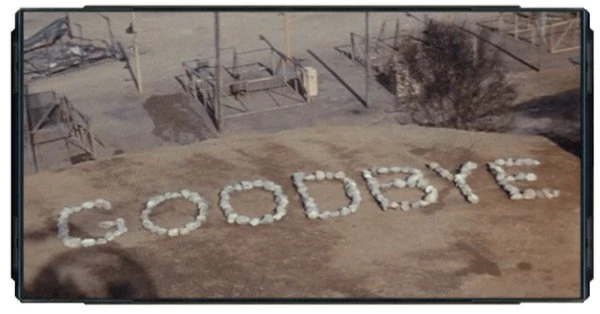
In February 1983, CBS aired the series finale of M*A*S*H. The two-and-a-half hour special, Goodbye, Farewell and Amen drew over 100 million viewers-the largest audience for a single television series episode in America, a record it still holds today. M*A*S*H went off the air because star Alan Alda and most of the remaining cast members agreed 11 seasons was long enough. The only three actors who voted to continue the series were Harry Morgan (Colonel Sherman Potter), William Christopher (Father Mulcahy) and Jamie Farr (Sergeant Maxwell Klinger).
Neither CBS nor 20th Century Fox (which produced the series) wanted to see M*A*S*H go, and executives were keen on continuing the franchise. Producer Larry Gelbart (who developed the television version of M*A*S*H from its origins as a book and a highly successful 1970 film) was lured back to create the new series. He wrote the first several episodes as a transition from the original M*A*S*H to the new programme. Also on board was M*A*S*H executive producer Burt Medcalfe and several writers from the old series. Morgan, Christopher and Farr agreed to sign on as stars of the new show-which was billed as "a continuation of M*A*S*H." But it wouldn't be a cheap project. Each episode of the follow-up series reportedly cost $500,000 to produce-the most expensive half-hour television series at that time.
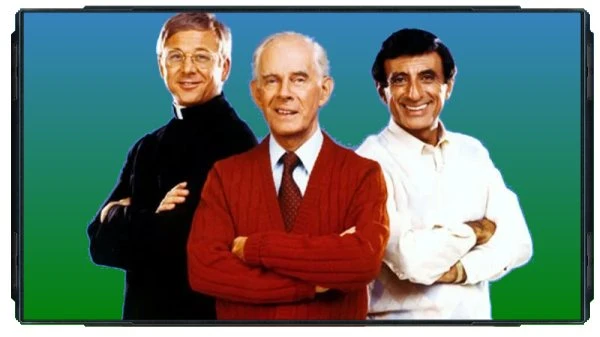
In the M*A*S*H finale, Colonel Potter expressed his desire to retire from the Army, set up a small medical practice and live his golden years with wife Mildred in Hannibal, Missouri. Max Klinger-who tried everything from wearing dresses to eating parts from a Jeep to get discharged from the service-announced he would stay in Korea to help find the missing parents of his new bride, Soon Lee Han (Rosalind Chao). And during the final episode, Father Mulcahy lost his hearing due to a mortar round explosion. AfterMASH picked up the story several months later, in September 1953.
Potter became bored with retirement, so wife Mildred (Barbara Townsend) suggested he return to work. The former commander was hired as chief of staff at General Pershing Veteran's Hospital in the fictional Missouri town of River Bend. Meanwhile, Klinger was having problems in his hometown of Toledo, Ohio: He had gotten into trouble with the law, and his old friends shunned him once they learned of his marriage to the Korean Soon Lee. Klinger wrote a letter to Potter, which led to Potter hiring him as his administrative assistant (a job not unlike Klinger's role as Potter's aide in Korea). Father Mulcahy became depressed and started drinking after losing his hearing; Potter arranged for Mulcahy to undergo hearing repair surgery (which proved successful) and-surprise-he became the house chaplain at General Pershing.
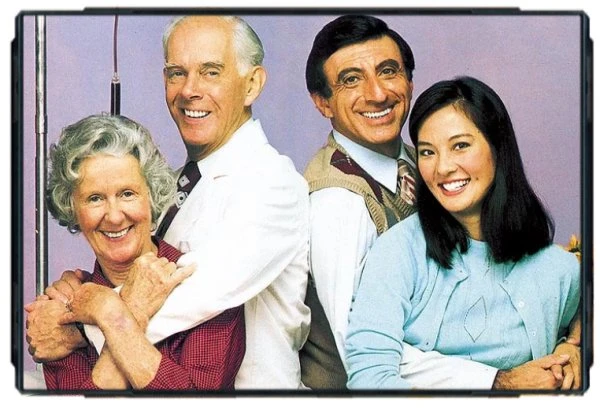
AfterMASH’s supporting cast also included the buffoonish hospital chief of staff, Mike D'Angelo (John Chappell) and his executive secretary Alma Cox (Brandis Kemp), who always tried to catch Klinger in the act of wrongdoing. Other co-stars included a Hawkeye-like surgeon named Gene Pfeffier (Jay O. Sanders); Secretary Bonnie Hornbeck (Wendy Schaal); and a former World War One buddy of Potter's, Bob Scannell (Patrick Cranshaw). CBS slotted the new series in M*A*S*H's old time slot (Monday nights at 9:00 PM), and aired a special one-hour premiere on September 26th, 1983. The interest in the characters (and the network's secrecy about the show's details) drew plenty of viewers. It topped the ratings with a 47 percent share of the available audience - the highest rated sitcom debut since ABC launched Laverne & Shirley in 1976.
But as the weeks went by, the audience for AfterMASH began to drop away.
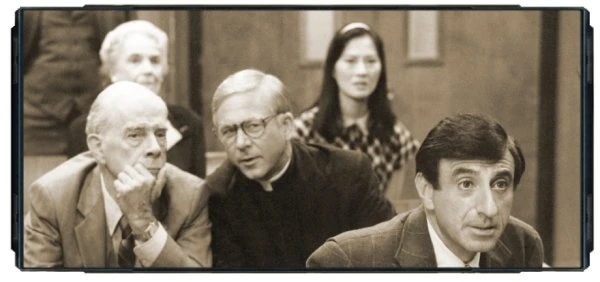
The show fell out of the top ten by November, but managed to stay among the top 20 series. CBS ordered a full season (22 episodes). When the show premiered, Larry Gelbart told The New York Times that the new programme would have a different focus than M*A*S*H: "We are really dealing with men coming home from war, not dealing with men at war." Indeed, while members of the 4077th operated on the front lines and placed themselves in harm's way, AfterMASH was safely set in the post-Korean War era, with its principal characters able only to see the horrors of war second-hand. That lessened the tension and drama which made the parent series such a challenging and rewarding programme to watch. And there was a bigger problem that could not be solved.
By the fall of 1983, reruns of M*A*S*H were big audience draws on local television stations across the nation. AfterMASH not only had to compete against its successful rivals on the other networks (ABC's Monday Night Football and NBC's movie showcase), but also with M*A*S*H repeats - - - inviting unfair but inevitable comparisons. Perhaps the best episode of AfterMASH aired on December 5th, 1983. Entitled Fallout, the instalment had both Potter and Pfeiffer seriously considering leaving their jobs-until they came upon a connection between a patient diagnosed with leukaemia and his exposure to above-ground nuclear weapons testing. Gelbart wrote and directed the episode, which was nominated for an Emmy in the comedy directing category. Fallout had the potential to create a new yet distinct direction for AfterMASH. But as the ratings continued to drop, both the producers and CBS executives were in panic mode.
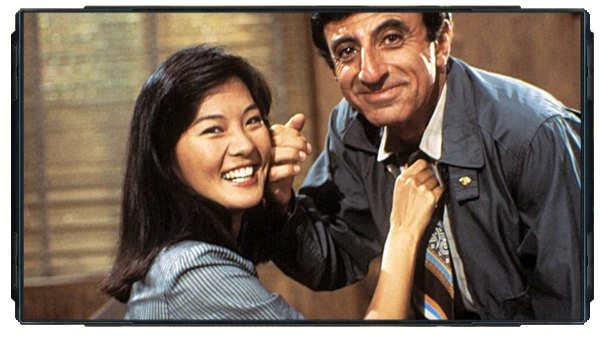
January 1984 saw the departure of the Hawkeye-like Dr. Pfeiffer; TV Guidemagazine reported that Sanders was eliminated from the cast because "the character just wasn't working." In his place came Dr. Mark Boyer (David Ackroyd), a surgeon who lost a leg during the Korean War. And in an effort to lure back the M*A*S*H faithful, Gary Burghoff agreed to return as the clairvoyant but innocent Walter "Radar" O'Reilly in a two-part episode where he was set to marry his small town sweetheart-only to arrive in Missouri at Potter's house with cold feet.
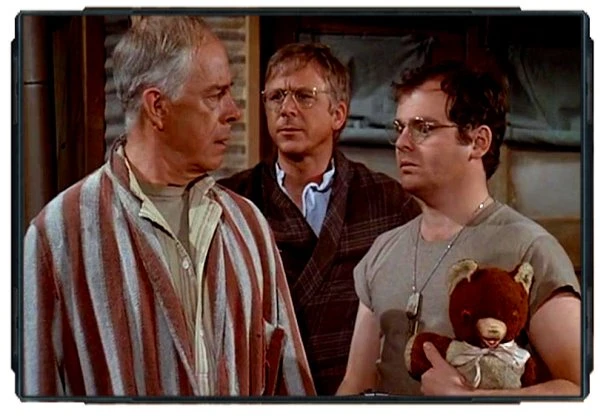
CBS renewed AfterMASH for a second season (the first season ended up in 15th place among all shows), but with the audience continuing to decline, even more changes were ordered.
The network, according to TV Guide, wanted to "recapture some of the zaniness and desperation of the early years of the original M*A*S*H."Administrator Mike D'Angelo got the boot (he had transferred to Montana) and was replaced with a new hospital chief, John Chappel (Peter Michael Goetz). Barbara Townsend was let go as Mildred Potter; the role was recast with Anne Pitoniak, to make Sherman Potter's wife "more of a Gracie Allen type." And in a throwback to the early days of M*A*S*H, Klinger - who was on the run from the law in the first season finale - would again be wearing women's clothing to prevent being arrested, and more of Klinger’s M*A*S*H personality (a lovable but cunning con man) would be part of the new season. But CBS dealt AfterMASH a bad hand when it moved the show from its comfortable Monday night slot to lead off its much weaker Tuesday line-up in the fall of 1984. That meant AfterMASH would face the first half of NBC's immensely popular action-adventure series The A-Team.
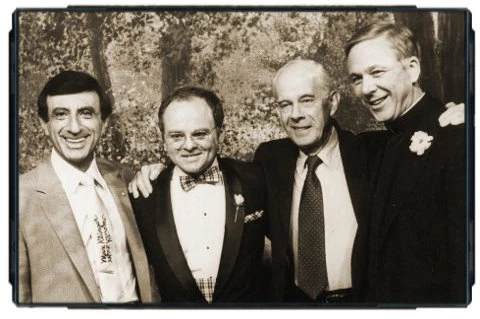
The second season premiere of what CBS billed as "the all-new AfterMASH" actually landed in the top ten-but CBS had slotted the show to run just before the network's coverage of the annual Emmy Awards telecast, ensuring a large audience. When AfterMASH aired its next original episode in its new Tuesday slot, it proved to be no match for The A-Team, falling from eighth place to a dismal 56th among all series in prime time. Subsequent episodes could not rise from those depths, and executives were quick to pull the trigger. On October 24th, 1984, CBS officially cancelled AfterMASH; it ended its final season in 90TH place among all shows aired during the 1984-85 TV season.
In 2002, the folks at TV Guide ranked the series 7th on its list of The 50 Worst Shows of All Time, calling it "one of TV's biggest disappointments." In the same issue, William Christopher (Father Mulcahy) seemed to agree: "What they ended up doing is trying to make the hospital silly. It didn't work as a silly hospital. There were some serious shows thrown in, but I know (CBS) was after the writers all the time to make it funnier." AfterMASH was, in the final analysis, an interesting concept. But it just couldn't live up to its predecessor, which was after all, a television classic.
Seen this show? How do you rate it?
Seen this show? How do you rate it?
Published on May 27th, 2020. Written by Mike Spadoni (2009) for Television Heaven.


